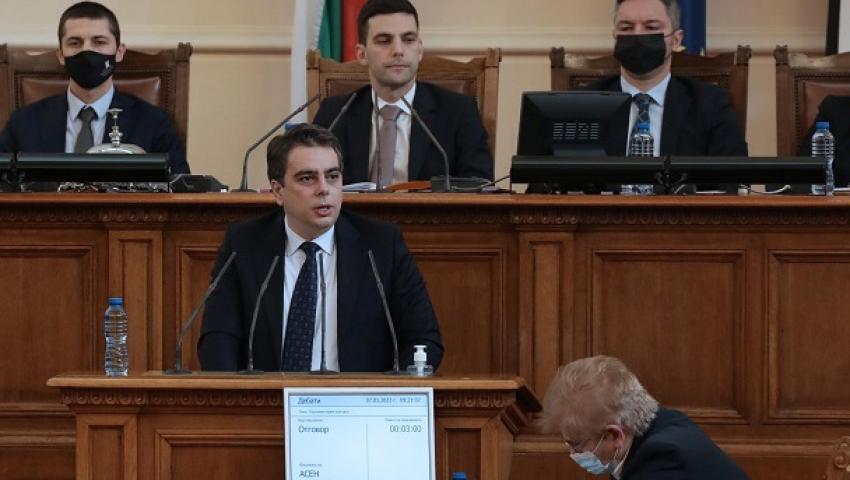Bulgaria changes the Recovery Plan, will not build a gas plant
We are already negotiating with the EC to move the waste incineration plant from Sofia to the Marishki basin

Source: BTA
Bulgaria is already negotiating with the European Commission to move the waste incineration plant from Sofia to the Marishki basin, Deputy Prime Minister and Minister of Finance Asen Vassilev announced today during the blitz control.
A steam and gas plant will not be built in the Maritza East complex, as envisaged in the National Plan for Reconstruction and Sustainability sent to the European Commission.
"We cannot replace an independent Bulgarian source, such as coal in the Marishki basin, with an imported source. From this point of view, we consider the construction of a steam and gas plant inexpedient. This was accepted by the European Commission
And we can safely rely on 400 megawatts of geothermal energy to happen by 2026. And in fact, this combination of generating capacity will help us reduce our dependence on coal, "said Asen Vassilev.
"What we have achieved and what we are working on is a combination of waste disposal. Instead of the garbage plant in the center of Sofia, high-tech waste disposal can take place in the Marishki basin. In addition, very large-scale development "We are talking about more than 12,000 megawatt hours. And much more serious development of geothermal energy," said the Deputy Prime Minister.
The idea to move the plant from Sofia to the Marishki basin was proposed during the coalition talks by Democratic Bulgaria. ITN commented then that the project should be watched carefully, which if it is not implemented, we will have to return the money to Brussels. "We continue the change" commented that it is necessary to make additional analyzes.
In his speeches, the Minister of Ecology Borislav Sandov commented that the project, if decided by Sofia Municipality, may need to be co-financed by the municipality with 80 million euros. In any case, the project is delayed due to delays in procedures, and it is funded by the Operational Program "Environment" 2014-2020 and construction should have started a long time ago. But due to environmental issues and problems that he could create in the valley of Sofia, they are increasingly moving him away from real implementation. A meeting of the Minister of Ecology with the Mayor of Sofia is forthcoming in the coming days to discuss all options.
At the blitz control, however, Sandov commented on the topic as follows:
"Bulgaria should not be a dump for rubbish, whether imported or not." The European Union's goals are to achieve higher levels of recycling. There is a government decision to limit certain types of waste and RDF fuel. The goal of the government, which is being discussed as an analysis, is not to maintain the Maritza East TPP with imported waste, but an analysis of whether the decision on waste that cannot be recycled can be used in this way, Sandov explained.
Sandov said that the government will do everything possible to prevent our country from becoming the last stop on Europe's waste. Strict control must be introduced, but we will do everything possible for Bulgaria not to import hazardous waste from abroad, assured Borislav Sandov.
Sandov stressed that since he took office, there have been no changes in the EIA policy and no tonnes of hazardous waste have been imported. These wastes that arrive in Varna are from the signatures of the former Minister of Environment and Water Emil Dimitrov from the GERB government. Municipalities, for the most part, do not do a good job of separating waste, the eco-minister said.
Municipalities, in turn, propose to build regional RDF installations to meet the needs of the region. And the quality of the separately collected waste is also the responsibility of the recovery organizations, for whose work the municipalities have a lot of criticism. The municipalities also insist on the possibility to introduce incentives for separate collection on the territory of their municipalities, as well as for a complete change and introduction of the "polluter pays" and municipal waste tax according to the quantity. The question is exactly by what methodology this can happen, and it must be prepared by the state. Due to the possibility of raising the price of municipal waste for the citizens, the issue is very serious and has been delaying its answer for almost a decade, and not only the municipalities but also the state are to blame here.
